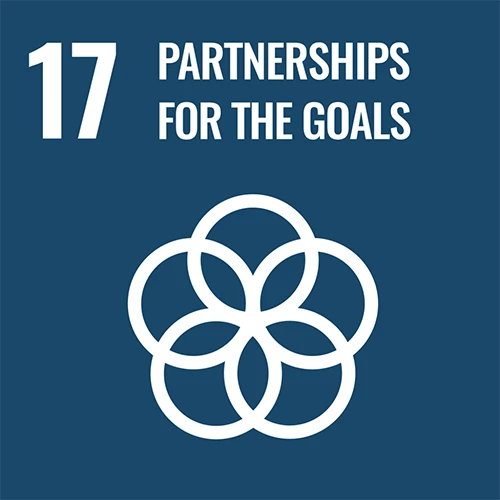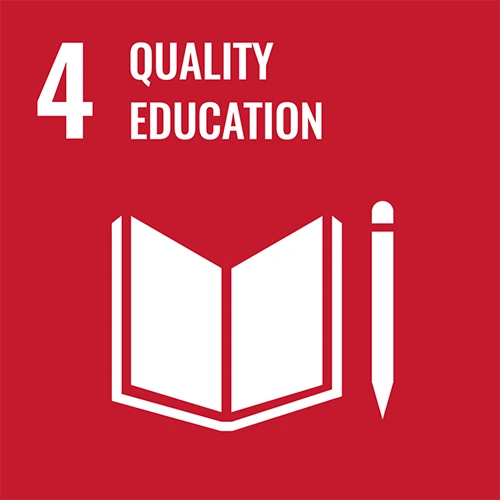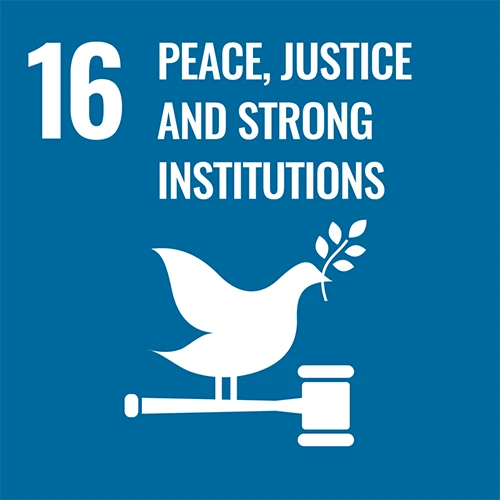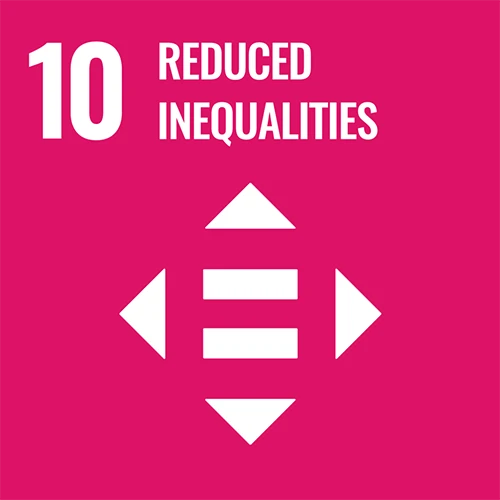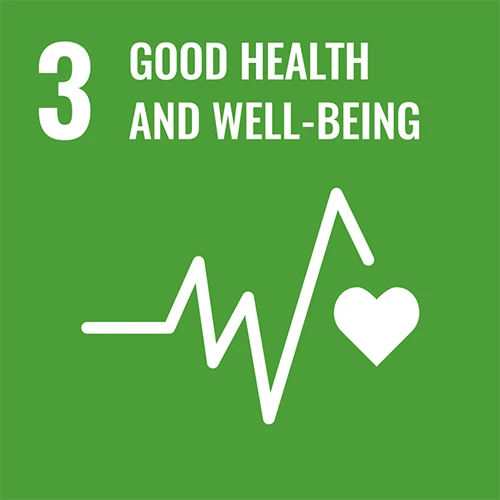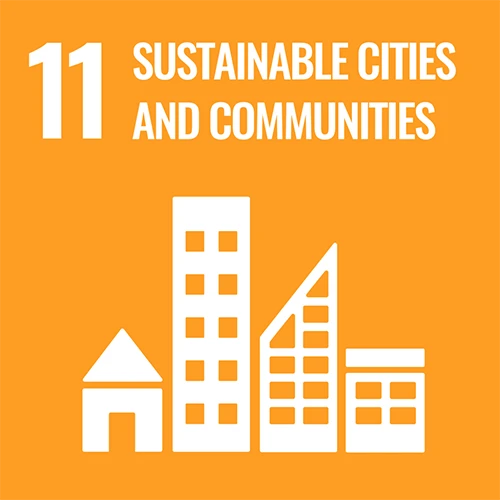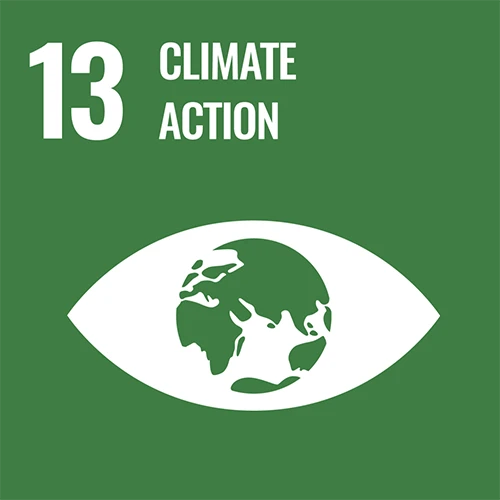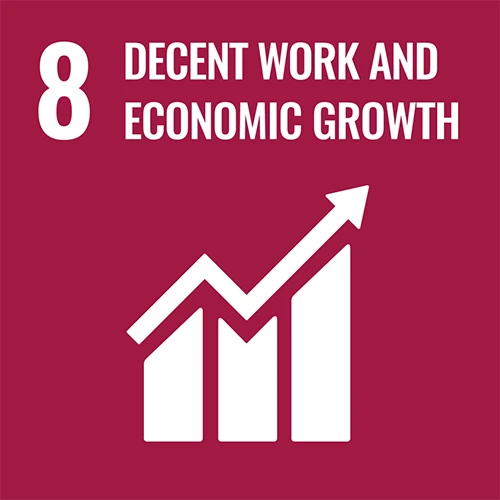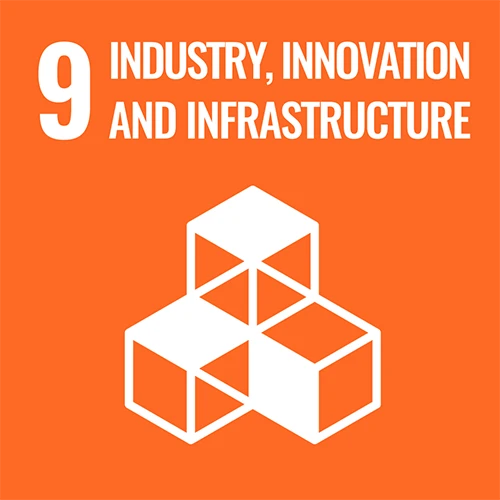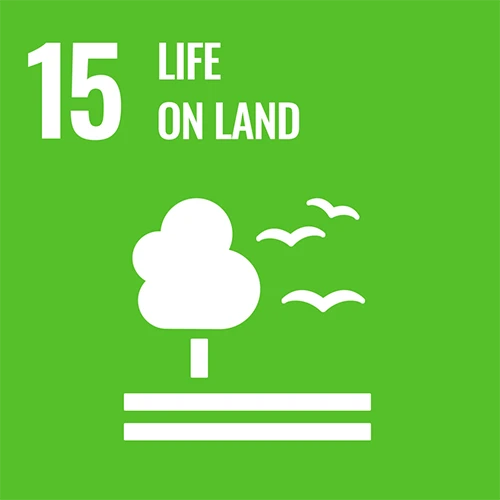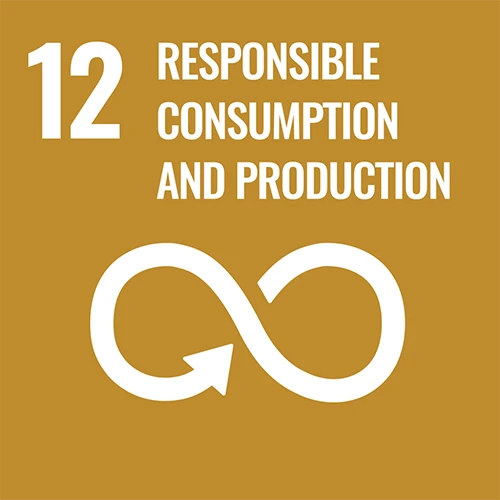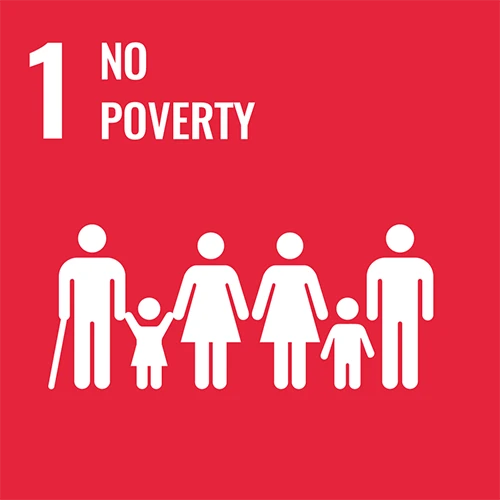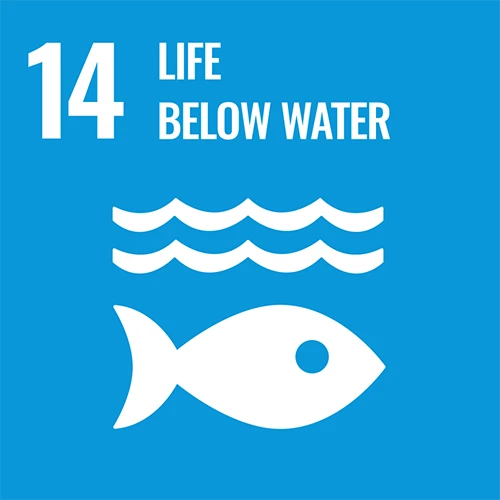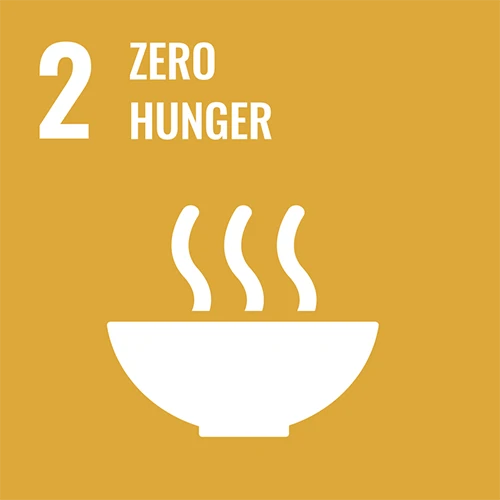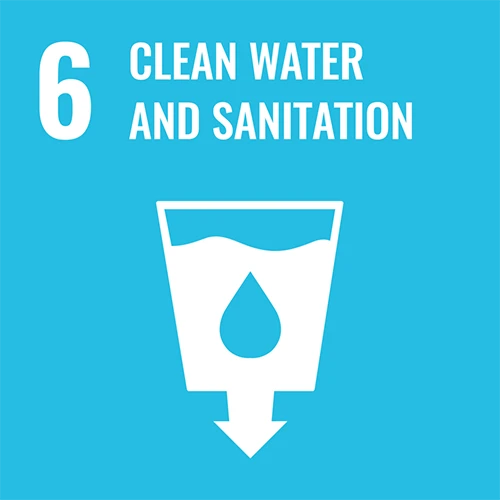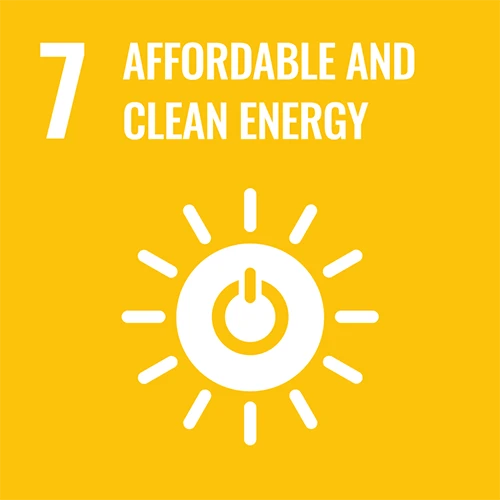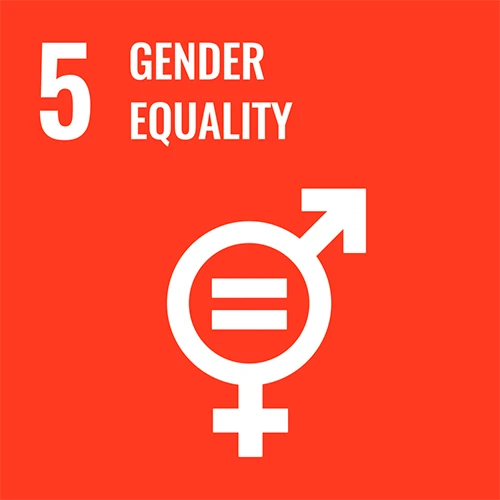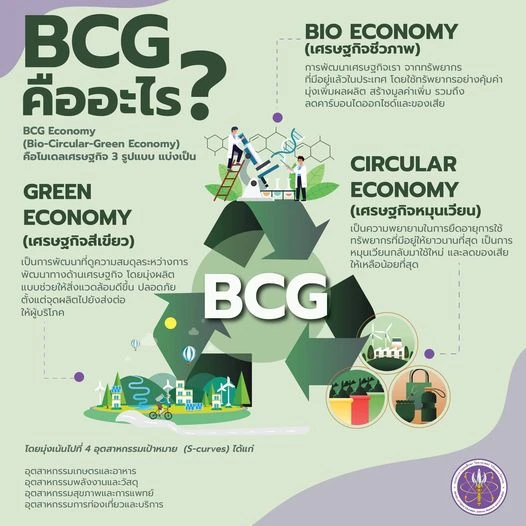In line with the President's policy to position the University of Phayao as an Area-Based University that utilizes the BCG Model as a platform to drive the university and develop local communities toward achieving the Sustainable Development Goals (SDGs) together, many may wonder: What exactly is BCG, and how is it relevant to the lives of the people at the University of Phayao?
BCG stands for BCG Economy (Bio-Circular-Green Economy), which is an economic model comprising three components:
-
Bio Economy: This focuses on developing our economy using the existing local resources efficiently. It aims to enhance productivity, create added value, and reduce carbon dioxide emissions and waste.
-
Circular Economy: This represents efforts to prolong the lifespan of existing resources, promoting their reuse and minimizing waste as much as possible.
-
Green Economy: This emphasizes balanced development, aiming to produce in a way that improves environmental quality and safety from production to consumer delivery.
The relevance of BCG to the University of Phayao community lies in the fact that many university projects are either part of or linked to the BCG model in an integrated manner. Some projects may represent one of the components (B, C, or G). For example, the "One Faculty, One Innovation Community" project for the fiscal year 2021 includes:
-
Bio Economy: A project focused on developing quality lychee production in Phayao province using good agricultural practices, enabling sustainable self-reliance for the Faculty of Agriculture and Natural Resources. This initiative helps farmers achieve premium-grade lychee production that is safe and sells at higher prices.
-
Circular Economy: The Chun Community Waste Management project utilizes scientific and social innovations, led by the Faculty of Science. This project aims to help community members manage waste more effectively and generate income from leftover waste.
-
Green Economy: A project involving the learning space for processing water hyacinth products using solar energy drying innovations in Phayao province, run by the Faculty of Energy and Environment. This initiative allows entrepreneurs to use solar drying innovations to produce OTOP products, reduce production costs, and minimize waste from the production process.
Socioeconomic Impact and Beneficiaries
The core of the BCG model is to generate income and reduce expenses. BCG is envisioned to be the main economic foundation for Thailand's future, focusing on area-based production. This model emphasizes using easily accessible local resources with minimal costs, resulting in minimal waste and being environmentally friendly.

